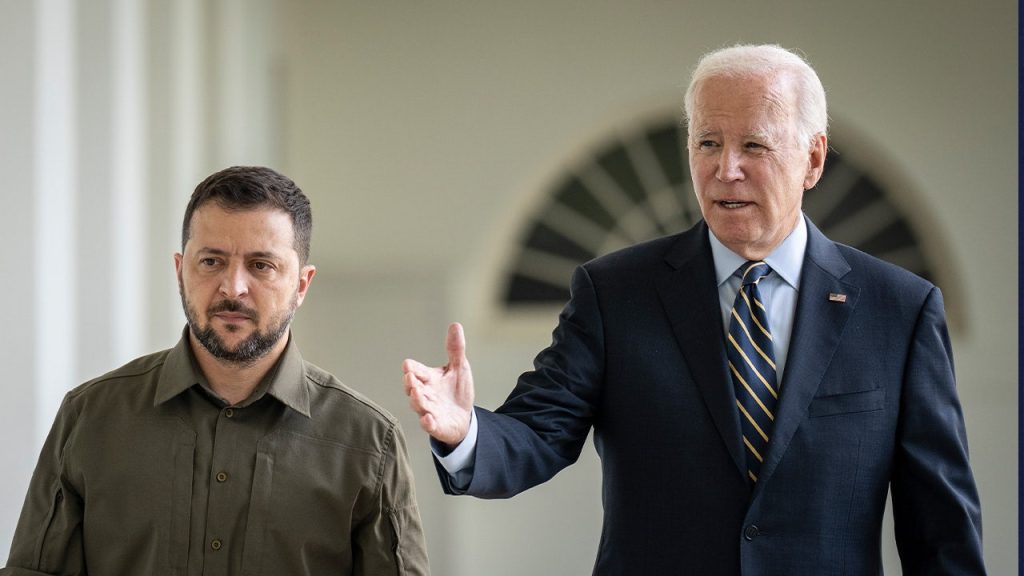President Biden announced an additional $8 billion in security aid to Ukraine following Russian President Vladimir Putin’s suggestion that Moscow may change its nuclear doctrine. Putin proposed that any attack by a non-nuclear nation backed by a nuclear-armed nation could be viewed as a joint attack, potentially impacting the conflict in Ukraine. Ukrainian President Volodymyr Zelenskyy is expected to discuss a victory plan during a meeting with President Biden and seek long-range strike capabilities. Ukraine has heavily relied on U.S. military support in its war against Russia, as neither the U.S. nor Russia have a no first use policy regarding nuclear weapons. Despite Putin’s threats, Biden reiterated his commitment to help Ukraine win the war.
In response to the escalating threat of a nuclear conflict by the Kremlin, President Biden stood firm in supporting Ukraine’s efforts and announced the approval of the first-ever shipment of a medium-range precision-guided glide bomb called the Joint Standoff Weapon. This weapon would allow Ukraine to strike Russian targets from a safer distance, addressing the need to counter Russian advances on its eastern front-line. The $8 billion in aid will be divided between a previously authorized $5.5 billion presidential drawdown and an additional $2.4 billion authorized through the Department of Defense under the Ukraine Security Assistance Initiative. Biden also announced the deployment of a Patriot air defense battery and an expansion of training for F-16 pilots to further support Ukraine.
President Biden highlighted Ukraine’s achievements with the help of Western partners, including the battle for Kyiv, the retaking of territory seized by Russia, and the safeguarding of its sovereignty and independence. However, Biden emphasized that there is still more work to be done, leading to the surge in security assistance and additional actions to aid Ukraine in winning the war. The decision to provide additional aid comes amidst concerns of a potential cut-off of U.S. assistance to Ukraine under a second Trump White House administration. Biden’s commitment to supporting Ukraine demonstrates the importance of continued support in the face of escalating threats and challenges posed by Russia’s aggression.
Putin’s suggestion of altering Russia’s nuclear doctrine raised concerns about the potential for a nuclear conflict in Ukraine. The conditions outlined by Putin for Russia’s use of nuclear weapons include responding to a conventional attack that poses a critical threat to their sovereignty. This shift in nuclear policy adds a new dimension to the conflict in Ukraine and underscores the need for continued international support for Ukraine. Despite the threats posed by Russia, President Biden’s announcement of increased security aid reaffirms the U.S. commitment to standing by Ukraine in its fight against Russian aggression.
Ukrainian President Zelenskyy’s meeting with President Biden to discuss a victory plan and seek additional military capabilities reflects the ongoing challenges faced by Ukraine in its conflict with Russia. The push for long-range strike capabilities and increased security aid from the U.S. signals a commitment to bolstering Ukraine’s defenses and countering Russian aggression. As tensions escalate and the risk of a wider conflict looms, international support for Ukraine remains crucial in helping it navigate the challenges posed by Russia’s military intervention. The U.S.’s response to Putin’s nuclear threats underscores the importance of unwavering support for Ukraine’s sovereignty and territorial integrity in the face of Russian aggression.


